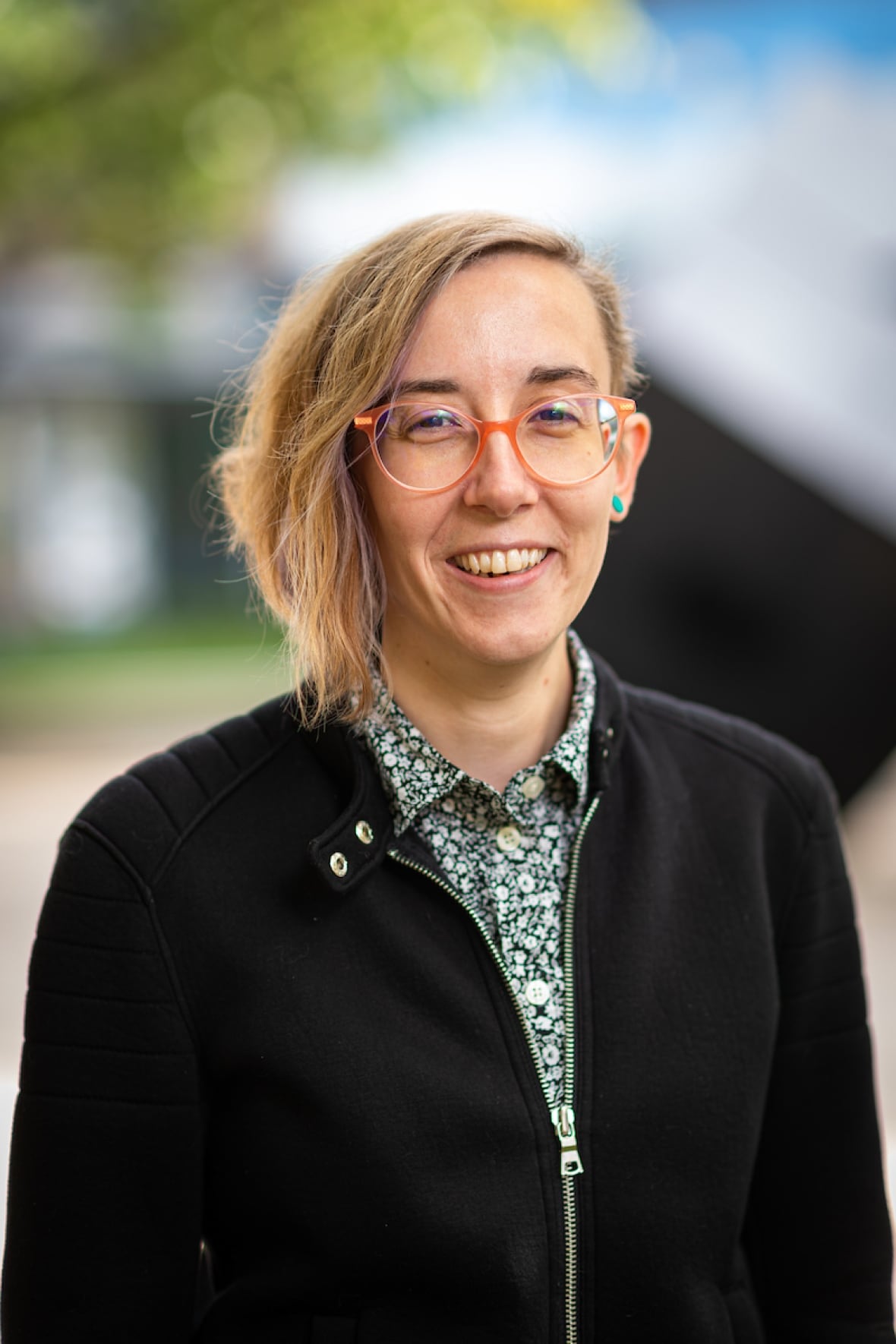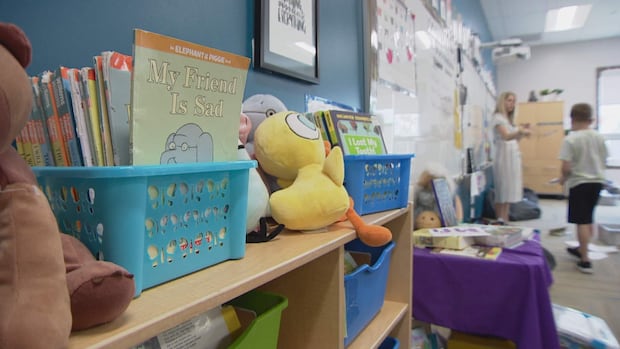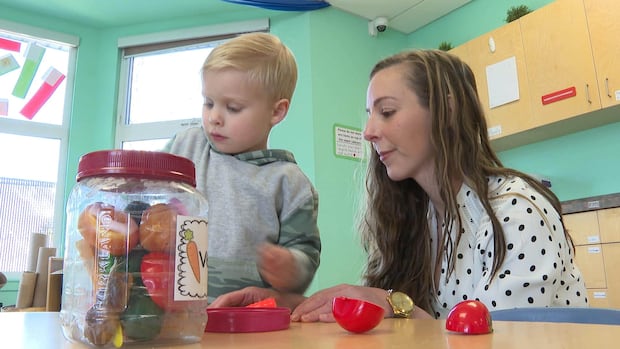
Some Canadians are celebrating a major autism organization’s decision to pull out of the country, highlighting a shift in the way people think about autism.
Autism Speaks quietly announced last month that it will end its Canadian operations on Jan. 31. “The intentional decision to conclude was not taken lightly and has been weighed against responsible stewardship through and through,” read a post on its website, which has since been taken down.
The largest autism organization in the U.S., known for star-studded fundraising events, has long faced criticism from people in the autistic community who say its work has focused too much on trying to “cure” autism and eliminate behaviours associated with it — ideas that have fallen out of favour as advocates work to embrace neurodiversity.
Autism Speaks set up in Canada in 2006 with a goal of finding a “cure” for autism. It dropped that word from its mission statement in 2016, and an official with the organization told CBC News it has long since moved past those early ideas.
Some autism-related forums and accounts online cheered the news of Autism Speaks’ exit. Disability satire Instagram page The Squeaky Wheel shared the news with a photo of children leaping happily, with one person commenting, “GOOD RIDDANCE.”
An autism advocacy account on Threads called the closure a “step forward for human rights.” And a blog post from Autistics 4 Autistics (A4A) Ontario, a self-advocacy organization, quoted an autism advocate calling the news a “Christmas miracle.”
Backlash reflects ‘big question’ for autism organizations
Anne Borden, co-founder of A4A Canada and A4A Ontario, says Autism Speaks’ exit is “a sign of the times.”
“I think it reflects the big question for autism non-profits and policymakers right now about the direction of autism services: Do you try to cure it, or do you include it? And what do parents and families want?” Borden said.
The Saskatchewan Ministry of Health is dealing with a serious backlog of children who need autism assessments and the wait is affecting kids in the classroom.
Autism Speaks ran an autism response team to help connect families with resources, and reported spending close to $5 million in community grants for work on the ground during its time in Canada.
But much of its funding went to controversial research projects, and some autistic Canadians say the organization has done more harm than good.
Borden cites the MSSNG Project, a collaboration between Hospital for Sick Children, University of Toronto, Autism Speaks, Verily and DNAstacks, which collected DNA from more than 12,000 children with autism for use in a shared database to create a genome sequencing database on autism.
Some autistic Canadians worried the goal was to identify, and ultimately eliminate, an “autism gene,” saying the research was driven by eugenic ideas. Researchers, however, said they were simply trying to understand the biology of people with autism in order to identify better interventions and supports.

Regardless, Borden said that type of research is not what autistic Canadians need.
“It doesn’t really benefit anybody in real life in terms of the actual needs of autistic people — which is, of course, improved housing, improved employment, inclusion at school, better access to health care and an end to disability poverty,” Borden said.
Her hope now is that government grants and other funds that went to Autism Speaks will be redirected to smaller, grassroots organizations run by autistic Canadians.
Backlash based on misconceptions, official says
Autism Speaks chief marketing officer Kelli Seely says the backlash against the organization is driven by misconceptions. She says the organization is proud of the work it’s done to help people in Canada, and noted some of that work will continue through partnerships with the parent organization in the U.S.
Canada Revenue Agency data shows Autism Speaks’ expenditures outpaced its revenues in 2022 and 2023, but Seely says that was a result of winding down operations, and that neither finances nor negative public perception had anything to do with the decision to close.
Seely says the organization never intended to stay in Canada permanently, and discussed the idea of exiting for several years before hiring a new executive director last April who helped set that direction.
“Today, there’s such a strong network of advocates and research partners across Canada. And our goal was always to kind of set the wheels in motion and eventually step back, knowing that the work would continue based on the foundation that we were able to build,” she said. “And that’s now.”
Diagnoses increasing as attitudes shift
Autism Spectrum Disorder is a neurological condition that affects the way the brain functions and results in difficulties with communication and social interaction.
The Government of Canada said in 2019 that about two per cent of Canadians aged one to 17 had been diagnosed with Autism Spectrum Disorder. But diagnoses have been skyrocketing in recent years, due in part to broader definitions of autism and growing public acceptance and understanding of neurodiversity.
Some provinces are now seeing significant backlogs for autism assessments, with some children waiting years.
Alberta autism groups and parents are concerned that wait times for children’s services are leading to some on the spectrum being too old for programs by the time the province reviews the case.
M. Remi Yergeau, an associate professor of communication and media studies at Carleton University who studies autism, says the autistic community has played a big role in the shift in public perceptions by organizing and protesting.
Yergeau, who is autistic, says organizations like Autism Speaks are successful at raising funds because donors are well meaning, but in the long term, they don’t really help the people they are purporting to help.
“It actually makes life harder and diminishes your worth as a person and how other people see you,” said Yergeau, who uses they/them pronouns.
They say the protest movement against Autism Speaks hit full swing in 2009, after the organization released an infamous ad called “I Am Autism,” which it has since apologized for.
The video, narrated over ominous music by a personified voice of autism, contained lines like, “If you are happily married, I will make sure that your marriage fails,” and “I will make it virtually impossible for your family to easily attend a temple, a birthday party, a public park, without a struggle, without embarrassment, without pain.”
“They’ve got a long history of using pretty divisive and militaristic rhetoric to talk about autism, and for the longest time, they didn’t have autistic people meaningfully involved in the structure of the organization,” Yergeau said.

One advocate worries families will be left behind
But Tiffany Hammond, an author and content creator based in Texas who has an autistic teenage son, wrote on Instagram that she had mixed feelings about the news, saying mainstream autism advocacy has ignored the diversity of needs in the community.
Hammond told CBC News she found the celebratory online reaction “jarring.”
She says she has moved away from Autism Speaks in recent years, but the organization had helped her in the past, by connecting her with other families so she felt less isolated, and by helping her son get his first iPad.
“They had a lot of family-oriented teams back when my son was younger,” Hammond said. “We did a lot of parent support groups that were sponsored by them.”
Autism Speaks has also been criticized for promoting applied behaviour analysis, or ABA, a type of therapy that trains people to change certain behaviours. Critics say it trains children to conform rather than embracing their unique qualities, and some have compared ABA to gay conversion therapy.
But Hammond says for some people, ABA has been the only thing that helps, and she worries families might be left behind.
“It’s just layers, nuance, all these things,” she said. “I feel like a lot of that is missing from mainstream autism advocacy, especially online.”





